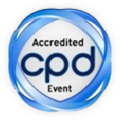
Armon J Tamatea
University of Waikato, New Zealand
Title: “I’ve been stabbed, cut, had bones broken, I’ve broken heads, I’ve punched out eyes…I love it!â€- Towards an understanding of the rehabilitation needs of gang members in New Zealand
Biography
Biography: Armon J Tamatea
Abstract
Gangs have been part of New Zealand communities since the 1950s and because of the relationship between gang membership and crime, these groups have been an ongoing focus for Police, Courts, Corrections, and local government, resulting in a number of policies and practices across these agencies designed to address antisocial behaviour or even ban collective assembly in public places. International research indicates that involvement in gangs increases an individual’s risk of offending behaviour, not least due to socialisation into a community that holds and supports pro-criminal norms. However, these groups are also likely to be burdened by histories of socioeconomic disadvantage and structural inequality. While the behaviour of these groups poses a challenge to law enforcement and criminal justice institutions, their marginality means that there are other less visible impacts that membership can exert on members themselves and their families with regard to personal (e.g., self-concept, identity), family (e.g., parenting, education, health), and social (e.g., employment, crime reduction) outcomes. Whilst much has been said about these groups in the popular media, research with gang communities in New Zealand is sorely lacking. Understanding the negative effects that are consequent to gang involvement as well as pathways out involves an understanding of gangs in the context in which they exist. This presentation discusses key issues and the development of methodologies to understand specific factors that act as barriers to valued outcomes and pathways to better facilitating outcomes such as reduced crime, reduced violence, and enhanced family and social cohesion.

